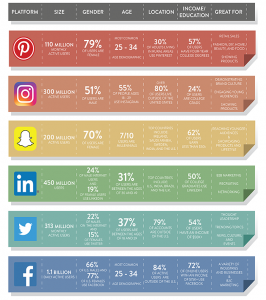76% of the consumers today buy products and services online because of the email marketing campaign. This inexpensive tool is efficient enough to drive significant ROI as it increases the chances of customer retention and generates great leads and conversions.
80% of marketers today believe that emails are among the best internet services that offer the most value for money.
However, there is no doubt how great this channel is, but ensuring your brand and customers’ safety from cybercrimes should be your fundamental concern. If you fail to provide security to your customers, your campaign and product are all on the wane.
With the rise of cybercrimes, it has become essential for email marketers to have a good email security guide to combat possible scams and cyber-attacks.
Some Typical Threats In Email Marketing
These typical cyber-attacks are a significant danger your marketing efforts are prone to, as they drastically affect your ROI.
1. Scams
Email scams are one of the worst nightmares of marketers and email users, and the frequent rise of innovative and shrewder scamming schemes are not in the mood to slow anytime soon.
This attack results in hacked emails and recipients losing their trust and no longer believing the seller again. To fight this, make sure your marketing email has an original name and is as relevant as possible.
2. Malware
Malware includes different type of sources for software damages or system disturbances such as manipulations with clipboard, viruses, adware, spyware, Trojan horses, etc. It is the terrible news no marketer wish to listen to ever.

Malware may include an innocent link that can disrupt your entire email marketing campaign and fetch your customer data that won’t be easy to rectify.
So. Be vigilant and ready to take precautions against it.
3. Spoofing
Spoofs are the forgeries of emails that appear to have come from a company rather than a cybercriminal. Most of the time, these criminals create replicated emails of an existing brand but are not limited. They even go far by generating an identical copy of landing pages that the brand uses.
4. Phishing
Phishing attacks hit the companies and their customers hard. The recipients become victims of these social engineering attacks, and attackers easily steal customers’ personal and financial information. Once hijacked, they can significantly penetrate your business and make it vulnerable.
Essential Guide To Secure Your Marketing Emails
You are never too late to take your email security guide seriously. This list of some essential guidelines is something you need to implement right now to protect your company and clients from the cyber-attacks that derive from email.
a) Use Firewall And Other Quality Email Tools
Quality security tools help you manage data, protect your email from cyber threats, manage passwords and encrypt emails.
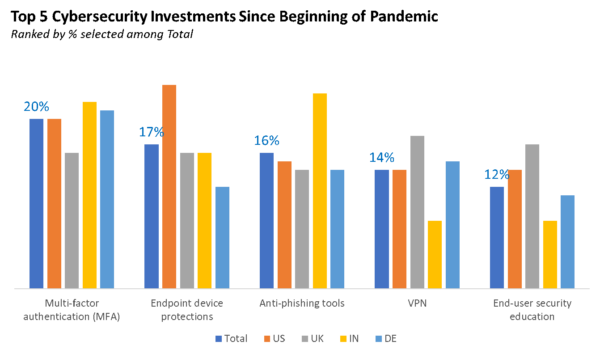
The use of email security gateways has drastically risen during the covid lockdown due to the increased cyber-attacks. Marketers are employing various free tools since the start of the pandemic. Such as firewall. Email firewall protects your inbox from cyber threats and enables you to filter out the emails that have attached malware and other knotty constituents in them.
These cybersecurity tools can be categorized into different types, some of them excluding firewall includes:
- Network security monitoring tools
- Penetration testing
- Packet sniffers
- Network defense wireless-tools
- Web vulnerability scanning tools
b) Encrypt Marketing Email
Emails that are used for email marketing campaign include sensitive customer data that makes them vulnerable if accessed by the wrong hands. Therefore, you have to be extra cautious to secure these emails, so they’re illegible to anybody other than the intended recipients.
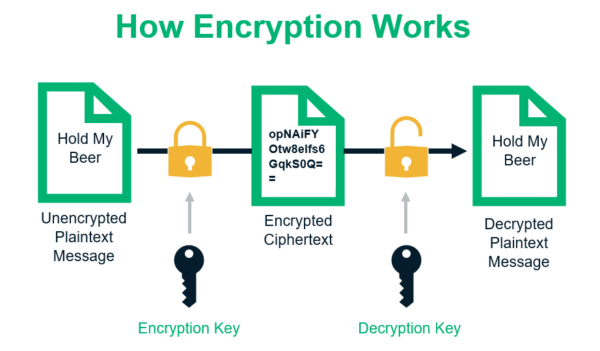
For this, it’s essential to have encryption on all the emails between you and your customers. Popular ISPs like Gmail, yahoo and outlook don’t offer end-to-end email encryption; therefore, make sure you use the proper method to encrypt your marketing emails so the private data is not vulnerable to anyone anymore.
c) Educate Consumers
Educating your customers about cyber-attacks not only serve them but benefits your email marketing campaign as well. You can tackle these scams because you know the risks present in online life, but what about your customers?
It has become essential to educate consumers about cybersecurity threats that they can come across anytime. Aware them of the cyber scams and security attacks and tell them the measures to prevent them. You can warn them about clicking innocent-looking links and other attachments from unfamiliar sources.

The best way is to educate them via emails, blog posts, adding disclaimers, FAQs etc.
d) Invest In Right Email Security Software
Maintaining your email marketing campaign’s security should be your foremost priority and needs to begin at the very initial levels. If you are using the ISP that is prone to hackings and other exposures, then it’s high time for you to invest in the right software; otherwise, you’ll risk your company and customers’ security.
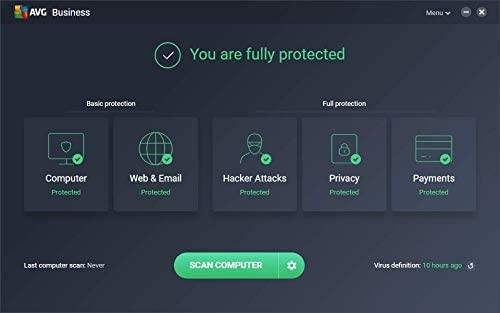
Since having gatekeeping software is no longer an option in this remote working era but necessary, finding reliable email protection software isn’t easy. You should be very watchful while choosing the right one because many who claim to be best are alleged with security pitfalls and sell your data on the dark web.
Some of the trustworthy email protection software we know includes:
- Perch security
- Trustifi
- Avanan cloud security platform
- AVG internet security business edition
e) Never Access Emails From Public Wi-Fi
Public Wi-Fi networks are the most conventional place for hackers to haunt and target attacks. On the one hand, it seems convenient; on the other hand, it puts you at great risk.
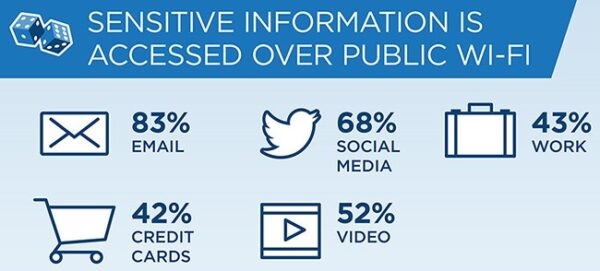
Public Wi-Fi is the favorite playground for hackers to steal your personal information. If you plan not to become a victim, this is the most common threat you need to know to stay safe online and protect your and your customer’s information.
Man-in-the-middle attack:
This technical term refers to an attack when you use open end connections, and a third party interrupts. So, instead of being shared between the server and customer, the link gets broken in between and the hacker can peak into your company credit score, consumer data or present their own version of a site. It is one of the worst risks of public Wi-Fi.
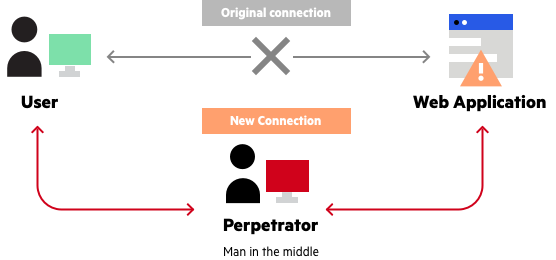
So, whenever you’re out, try not to use the public Wi-Fi or at least don’t use it for your email marketing, online banking, etc.
Global Impact Of Email Fraud
76% of the companies have experienced some cyber-attacks. It upsurges the risks for unaware users to download questionable credentials.
According to reports, the average user gets 17-18 malicious emails a month, making it 204-216 junk emails annually with potential destruction. And nearly 85% of all emails are spam.
Email frauds are costing businesses billions of dollars in obstructed productivity, security fissures, reputational damage and other notable issues.
You can simply utilize apps to grow your business. There are numerous security apps that can help your business from frauds.
Business disruption is yet another significant impact of email frauds. No matter how petite or large they are, they directly result in reputational damage that means disrupted business.
It can paralyze your company by breaching away your private data and assets; customers may not return to the company. Staff might also not continue their work which means an increase in unemployment.
If the company can recover in the following hours, it will be good for them. If not, they might not be able to restore their operations in the coming days, which mean a massive loss of money and data.
Digital & Social Articles on Business 2 Community
(62)



